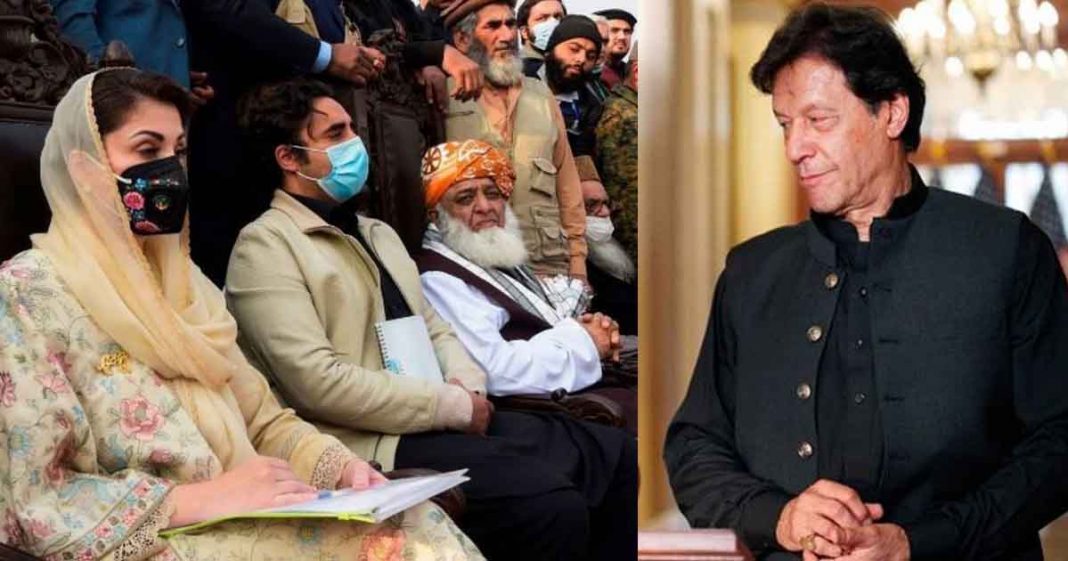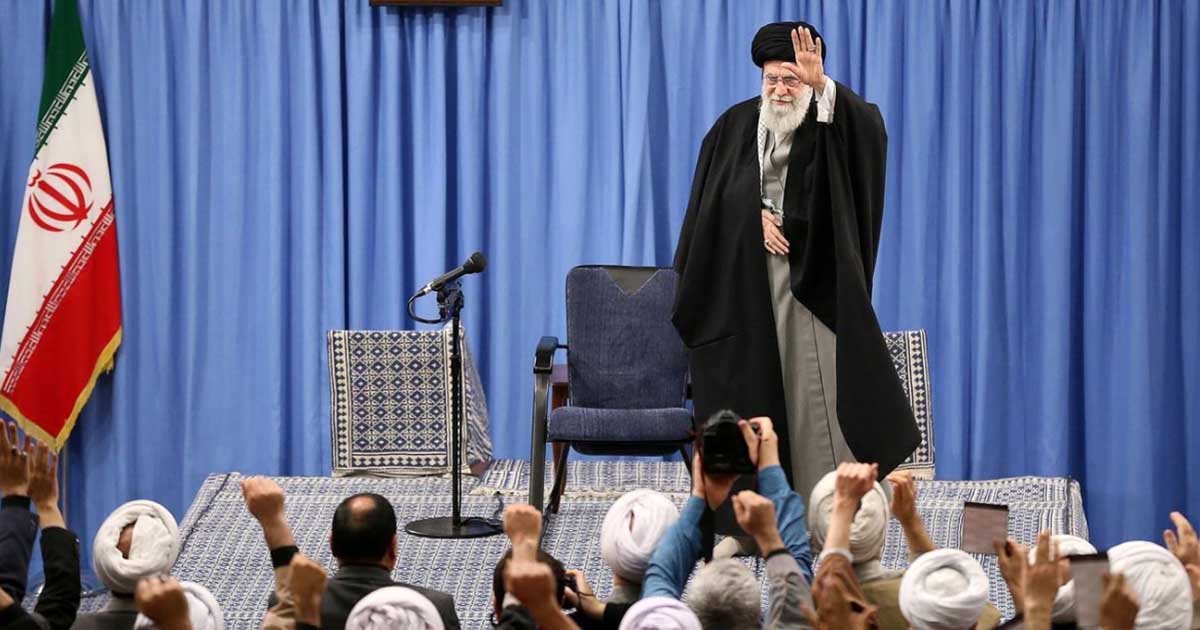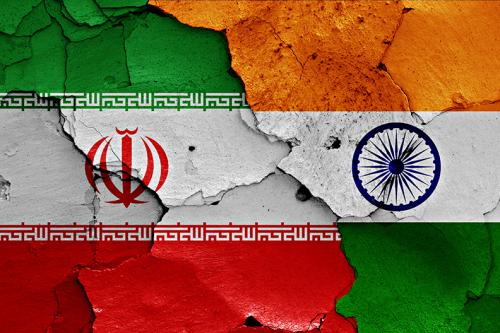Fahd Hussain, prominent television anchorperson and resident editor of Dawn in Islamabad, who also hosts his program, In Focus, on Dawn News Television, has this week advanced an argument emphasizing the need of a ‘Grand National Dialogue” between the Imran Khan government and the opposition represented by Pakistan Democratic Movement (PDM).
Fahd Hussain argues that the situation at this point in time between the government and the opposition has approached a standstill. He says that confrontation is building up. The current state is characterized by sloganeering and discord. He opines that the situation is fast progressing toward a troubling crisis, since nothing seems to be working to bring down the political mercury. He says there is an urgent need to address the issue.
In this regard, Mr Fahd Hussain has mentioned what he perceives as stumbling blocks in the search for a parliamentary solution. He says that if an attempt is made to initiate a debate by the parliament or a parliamentary committee, it will undoubtedly be accompanied by parallel debates in the media – both mainstream and the social media. In the ongoing political climate, he argues, that this will further muddy the waters.
Read more: PDM good start but will go nowhere!
Therefore, Mr Fahd Hussain has floated the idea of what he calls, “grand national dialogue”. He suggests that leading and seasoned politicians from all sides can get together and negotiate over the issues being raised by the opposition. For this idea to be implemented, he says that Federal Minister for Education Shafqat Mahmood, Minister for Planning and Special Initiatives Asad Umar, Minister of Industries and Production Hammad Azhar, and Defence Minister Pervez Khattak, can represent the ruling party.
For the negotiating team from the other side, he has put forward the names of Former Prime Minister Shahid Khakan Abbasi, Former Planning Minister Ahsan Iqbal, and Former Information Ministers Maryam Aurangzeb and Qamar Zaman Kaira. He suggests that a round of talks led by these personalities can find a political formula to avert what could be an impending crisis.
Unfortunately, though, as seen in the case of the FATF legislation, the demands for amendment in NAB laws are all retrospective; that is, they are designed for immediate relief in existing corruption cases
In order to discuss this possibility, Mr Fahd Hussain invited prominent columnists and media personalities to his show. Political analyst Mosharraf Zaidi said that the whole political establishment – including the judiciary, bureaucracy, and institutions of government – are reasonably intelligent and they know that a crisis is building up and that there is an immediate need for dialogue.
Dr Moeed Pirzada, on the other hand, doubted the immediacy of such a dialogue. He offered two broad premises for his take that there might not necessarily be a need for talks of this nature at this stage.
The first is that whenever such negotiations take place; they commence with two opposing future strategies or visions. In this case, however, it is clear that the opposition lacks not just cohesiveness amongst its own ranks, but also a clear, well-set out plan of action. It has put forward a large pile of rhetoric but what it has failed so far in presenting, is a vision for the country’s future political landscape.
Read more: Dual standards of politicians may cost us our lives and livelihoods
The PDM in its current form consists of three family dynasties: Sharifs, Zardaris and Maulana Fazal ur Rehman. And they are defined by immediate personal interests as opposed to long-term reform in the greater interests of the country. Sharifs and Zardaris want relief from corruption cases and Maulana wants to banish the current political set up – unless he gets a share in it.
In effect, there is no grand national vision on the part of the opposition, to create the need for a grand national dialogue. If the opposition had presented strategies for national improvement, they would have attracted sympathy from the urban intelligentsia as well as saner sections of the media. If, for example, they had presented a defined demand for electoral reform, in view of elections in 2023 or with the possible suggestion of earlier elections, it would have been impossible for the government to ignore.
If there had been a demand for prospective, instead of retrospective reform, in the NAB laws, that again would have been reasonable as well as actionable. Unfortunately, though, as seen in the case of the FATF legislation, the demands for amendment in NAB laws are all retrospective; that is, they are designed for immediate relief in existing corruption cases.
Imran Khan was not able to dislodge the government, and when the dharna was stopped due to the APS Tragedy, Nawaz Sharif was easily able to offer a lame duck judicial committee to PTI as a face-saving device
Imran Khan and his PTI will neither agree to nor be able to sell it to their support base. Having conducted his whole political struggle around a campaign to end corruption, Imran Khan is not even in a position to entertain such demands. This is also coupled by the fact that much of Imran Khan’s support base is derived from the educated middle class and the urban population, to whom corruption is a vital issue, as it directly affects them. Suburban and rural areas are more inclined to disregard it, but they do not sustain the PTI’s power and credibility.
The second argument advanced by by Dr Moeed, was that negotiations typically result when both parties have succeeded in demonstrating their respective powers. This is borne out by history as well. An example is how India was able to impose its own idea of peace on Pakistan, after its military success and the mortal blow it was able to inflict in 1971. At this stage, Dr Moeed said, the relative strengths of the government and the opposition have not been tested.
Read more: Through Ebbs & Flows: The Political Journey of PTI & Its Current Challenges
The successes so far of the PDM, are no headache for the government. The narrative of the opposition is certainly promoted by sections of both mainstream and social media. However, the lackluster performance, the opposition parties in the Gilgit-Baltistan elections, as well as a failed show in Peshawar, had weakened this narrative. The Multan Jalsa, in end November, did boost their image, but that too is owed to mismanagement by the Punjab government – in trying to use the police and district administration to physically stop it. The PDM needs to show a success that can pressurize the government and create the case for a grand national dialogue.
Dr. Pirzada argued that it is also instructive to remember Imran Khan’s own experience of the 2014 dharna. And for the opposition, it is not a particularly inspiring one. In recent political history, no one single individual has demonstrated more street power than Imran Khan, but even he, after a 126 day ‘dharna’, multiple jalsas, as well as lockdowns, was not able to extract a major gain, during a time that encompassed the sore political mood resulting from the Model Town killings at the hands of Punjab police. Imran Khan was not able to dislodge the government, and when the dharna was stopped due to the APS Tragedy, Nawaz Sharif was easily able to offer a lame duck judicial committee to PTI as a face-saving device.
Read more: Pakistan’s political Sunday? What lies ahead for PTI & PMLN?
Dr. Pirzada thus concluded that it remains to be seen whether PDM’s performance can put the government under sufficient pressure to offer a grand dialogue, which it hasn’t done as yet. It already doesn’t help the cause of the PMLN and Maulana Fazlur Rehman that the PPP has made no clear reference towards resigning from national assembly.
Aaina Maria is a free-lance blogger. She studied engineering and did her MBA from Lahore University of Management Sciences (LUMS), but is more interested in politics of Pakistan than its corporate world. The views expressed in this article are the author’s own and do not necessarily reflect Global Village Space’s editorial policy.














